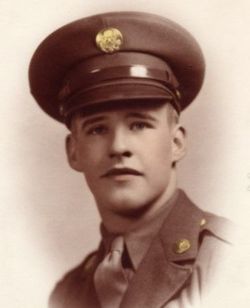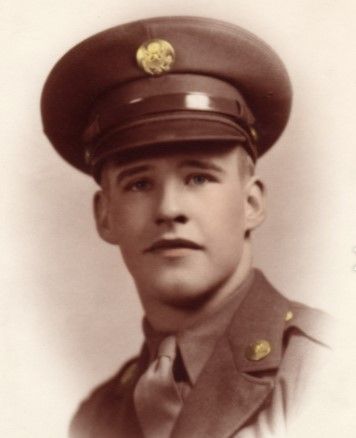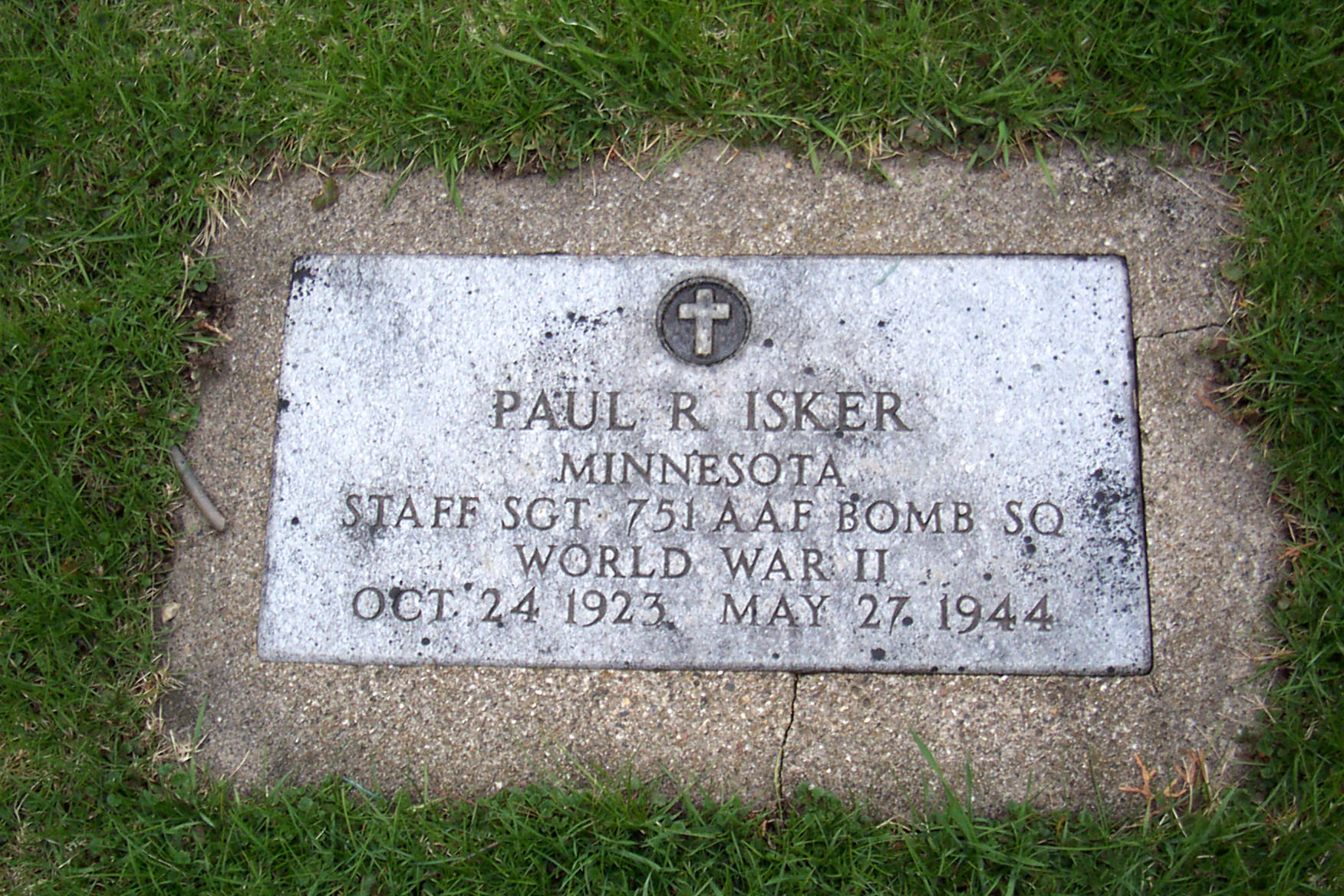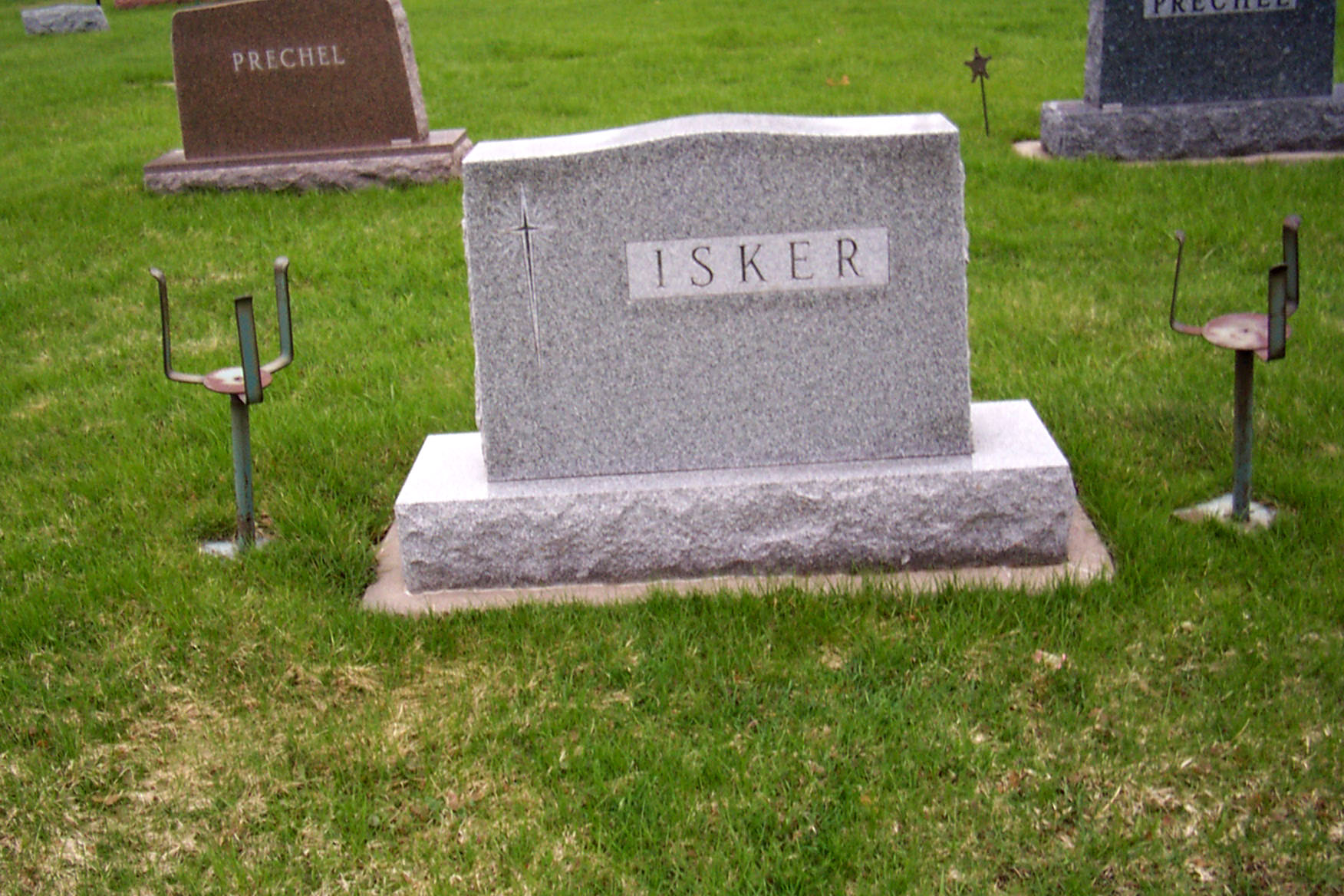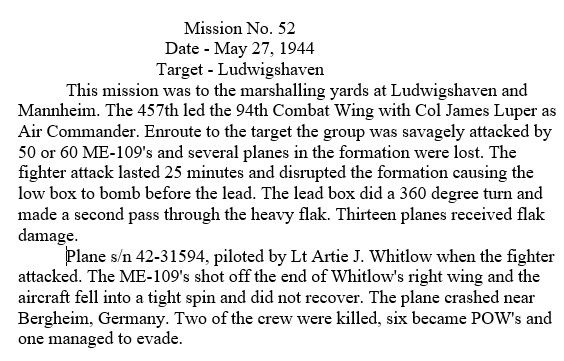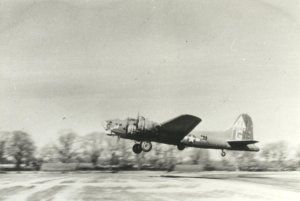CREW MEMBER CITES DEATH OF S-SGT. ISKER
__________
Letter Sent To Parents Relates Details of Plane Explosion
_________
Lt. Daniel G. McLaughlin, a member of the plane crew in which Staff Sgt. Paul R. Isker was killed, wrote a latter describing the mission and subsequent death of Isker, to Paul’s parents, Mr. and Mrs. Herman Isker. Lt. McLaughlin was taken prisoner after he landed from his parachute and just recently returned to this country.
The letter is as follows:
“Dear Mrs. Isker:
I was the Bombardier-Navigator of the crew on which your son was the Engineer. Please forgive me for not writing sooner. Mother told me she had heard from you before I came home but I have not read the letter and didn’t know that you didn’t have full information on what happened to Paul on that mission. When I came in this evening and read the letter my mother received this morning, I realized what anguish and heart breaking moments you must have spent since May 17 of ‘44, and I’m sure you want to know any and everything I may know about your son.
First, I want to say that Paul did die that morning but he did so bravely and it was fast. I knew Paul only three weeks but that was long enough to know that I was proud to be on the same plane as he. I’, not just trying to console you, but I’, telling you truthfully just what I thought of Paul. I know that, had he known what was going to happen that day, he would have said, “Tell Mother and Dad to keep their chins up.” Please do Mrs. Isker. Paul died a hero’s death. Yes, I know that’s small compensation for his leaving this world, but he could not have died any finer — fighting for his country and what is right in this world.
That morning we were told we would not encounter enemy fighter and, however, we had our own escort for protection. At eleven o’clock our own fighters were five minutes late and before we realized what was going on, some 200 Jerrys hit us — our wing, which consisted of 54 forts, and the first four coming out of the sun got us. I’m not sure, but that was probably when Paul was hit. He did not say anything over the interphone, so I suppose he was dead or unconscious immediately. On of the shells also hit Art Whitlow’s, the first pilot, parachute and consequently the reason for it not working when he left the plane after everyone else had jumped.
The second Messersmidt hit out right wing tanks and No. 4 engine, setting the wing on fire. We had time to fire a few rounds back when the inside of the plane, which was burning at several places, was nearly filled with smoke. Artie gave the bail out order. He said the ship may blow up any minute. Sgt. Laval O’Masters and myself were the first two out and were caught and taken prisoners in France six weeks later. While parachuting down; I was not able to count the chutes coming out of the plane and still was not sure of what happened back on the flight deck. I saw no other members of the crew until I got back to France two days after the war was over. There I met Paul Clark, the radio operator. He told me he was sure you son had died and also that Whitlow’s chute did not open when he left. Paul Clark then said the plane blew up while it was still a few thousand feet in the air.
Mrs. Isker, I’m writing a story, not for publication, but to keep in years to come and I want to dedicate it to your son and the pilot, Artie Whitlow, who gave their lives for us that day over Europe. And, I wondered if it were at all possible for you to send me a picture of Paul. I know you do not want to part with any of them, but maybe you have a snapshot of which you still have the negative. I would appreciate it very much if I could have one.
Please write again, Mrs. Isker, and if there is anything I can do to help, just let me know.
Very sincerely,
Lt. Daniel G. McLaughlin.
Staff Sgt. Paul Richard Isker was born October 24, 1923. He was an honor student, graduating with the class of 1942 at Waseca Central high school.
He enlisted in the army air corps in October of 1941 and trained at Big Springs, Texas, Gulfport, Miss., Laredo, Texas, Ephrate, Wash., and Rapid City, S. D. From Rapid City, he was transferred to Langley Field, Va., from which station he left for England by plane. He graduated at Laredo and was asked by his commanding officer to stay on as an instructor. Instead, Paul chose active service and died a hero’s death in the service of his country. Sgt. O’Masters, another member of the crew said of him. “Paul was the gentleman of the crew. Regardless of what the others do, Paul is always the gentleman. Another crew member, Sgt. Woodis, said, “Paul was the best friend I’ve ever had.”
Waseca Herald 7-26-1945
CREW MEMBER CITES DEATH OF S-SGT. ISKER
__________
Letter Sent To Parents Relates Details of Plane Explosion
_________
Lt. Daniel G. McLaughlin, a member of the plane crew in which Staff Sgt. Paul R. Isker was killed, wrote a latter describing the mission and subsequent death of Isker, to Paul’s parents, Mr. and Mrs. Herman Isker. Lt. McLaughlin was taken prisoner after he landed from his parachute and just recently returned to this country.
The letter is as follows:
“Dear Mrs. Isker:
I was the Bombardier-Navigator of the crew on which your son was the Engineer. Please forgive me for not writing sooner. Mother told me she had heard from you before I came home but I have not read the letter and didn’t know that you didn’t have full information on what happened to Paul on that mission. When I came in this evening and read the letter my mother received this morning, I realized what anguish and heart breaking moments you must have spent since May 17 of ‘44, and I’m sure you want to know any and everything I may know about your son.
First, I want to say that Paul did die that morning but he did so bravely and it was fast. I knew Paul only three weeks but that was long enough to know that I was proud to be on the same plane as he. I’, not just trying to console you, but I’, telling you truthfully just what I thought of Paul. I know that, had he known what was going to happen that day, he would have said, “Tell Mother and Dad to keep their chins up.” Please do Mrs. Isker. Paul died a hero’s death. Yes, I know that’s small compensation for his leaving this world, but he could not have died any finer — fighting for his country and what is right in this world.
That morning we were told we would not encounter enemy fighter and, however, we had our own escort for protection. At eleven o’clock our own fighters were five minutes late and before we realized what was going on, some 200 Jerrys hit us — our wing, which consisted of 54 forts, and the first four coming out of the sun got us. I’m not sure, but that was probably when Paul was hit. He did not say anything over the interphone, so I suppose he was dead or unconscious immediately. On of the shells also hit Art Whitlow’s, the first pilot, parachute and consequently the reason for it not working when he left the plane after everyone else had jumped.
The second Messersmidt hit out right wing tanks and No. 4 engine, setting the wing on fire. We had time to fire a few rounds back when the inside of the plane, which was burning at several places, was nearly filled with smoke. Artie gave the bail out order. He said the ship may blow up any minute. Sgt. Laval O’Masters and myself were the first two out and were caught and taken prisoners in France six weeks later. While parachuting down; I was not able to count the chutes coming out of the plane and still was not sure of what happened back on the flight deck. I saw no other members of the crew until I got back to France two days after the war was over. There I met Paul Clark, the radio operator. He told me he was sure you son had died and also that Whitlow’s chute did not open when he left. Paul Clark then said the plane blew up while it was still a few thousand feet in the air.
Mrs. Isker, I’m writing a story, not for publication, but to keep in years to come and I want to dedicate it to your son and the pilot, Artie Whitlow, who gave their lives for us that day over Europe. And, I wondered if it were at all possible for you to send me a picture of Paul. I know you do not want to part with any of them, but maybe you have a snapshot of which you still have the negative. I would appreciate it very much if I could have one.
Please write again, Mrs. Isker, and if there is anything I can do to help, just let me know.
Very sincerely,
Lt. Daniel G. McLaughlin.
Staff Sgt. Paul Richard Isker was born October 24, 1923. He was an honor student, graduating with the class of 1942 at Waseca Central high school.
He enlisted in the army air corps in October of 1941 and trained at Big Springs, Texas, Gulfport, Miss., Laredo, Texas, Ephrate, Wash., and Rapid City, S. D. From Rapid City, he was transferred to Langley Field, Va., from which station he left for England by plane. He graduated at Laredo and was asked by his commanding officer to stay on as an instructor. Instead, Paul chose active service and died a hero’s death in the service of his country. Sgt. O’Masters, another member of the crew said of him. “Paul was the gentleman of the crew. Regardless of what the others do, Paul is always the gentleman. Another crew member, Sgt. Woodis, said, “Paul was the best friend I’ve ever had.”
Waseca Herald 7-26-1945
Family Members
Sponsored by Ancestry
Advertisement
Advertisement
